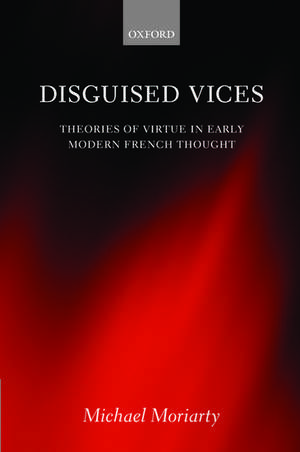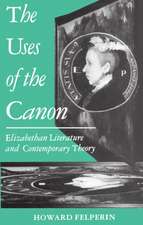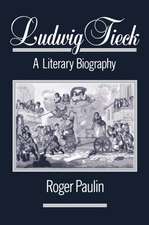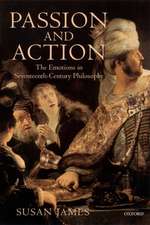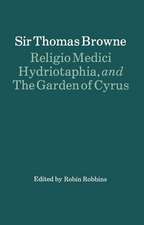Disguised Vices: Theories of Virtue in Early Modern French Thought
Autor Michael Moriartyen Limba Engleză Hardback – 7 sep 2011
Preț: 837.32 lei
Preț vechi: 1200.70 lei
-30% Nou
Puncte Express: 1256
Preț estimativ în valută:
160.24€ • 173.100$ • 134.60£
160.24€ • 173.100$ • 134.60£
Carte tipărită la comandă
Livrare economică 12-18 aprilie
Preluare comenzi: 021 569.72.76
Specificații
ISBN-13: 9780199589371
ISBN-10: 0199589372
Pagini: 420
Dimensiuni: 172 x 240 x 34 mm
Greutate: 0.8 kg
Ediția:New.
Editura: OUP OXFORD
Colecția OUP Oxford
Locul publicării:Oxford, United Kingdom
ISBN-10: 0199589372
Pagini: 420
Dimensiuni: 172 x 240 x 34 mm
Greutate: 0.8 kg
Ediția:New.
Editura: OUP OXFORD
Colecția OUP Oxford
Locul publicării:Oxford, United Kingdom
Recenzii
The range of enquiry is extensive, tracing the origins of early modern scepticism back to the ancients ... The author demonstrates an impressive range and depth of scholarship in his engagement with both primary sources and critical predecessors, in a style which is consistently lucid, readable, reflexive and thought-provoking. He shows how early modern debates on virtue, however remote in time, have a bearing on modern thought in their challenge to self-delusion and their affirmation of self-awareness and recognition. The impact of this illuminating book extends beyond its immediate audience in early modern scholarship, providing valuable critical insight into subsequent developments in the history of ideas in France and Europe
the third part of Michael Moriarty's ambitiously and impressively conceived project on early modern thought in France ... Together, they constitute probably the most important single body of work on French seventeenth-century thought for at least a generation ... Unquestionably, Moriarty's work stands as a valuable and magisterial analysis in itself of virtue authentic or otherwise. But it also constitutes a crucial component in the wider historical and intellectual context
La Rochefoucauld's nuanced and complex account of human behaviour is renewed by Moriarty's exposition of the transcendant values that it both assimilates and throws into question, as the reader confronts this wilfully and artfully provocative text in which, somme toute, 'moral agency is largely an illusion'.
the third part of Michael Moriarty's ambitiously and impressively conceived project on early modern thought in France ... Together, they constitute probably the most important single body of work on French seventeenth-century thought for at least a generation ... Unquestionably, Moriarty's work stands as a valuable and magisterial analysis in itself of virtue authentic or otherwise. But it also constitutes a crucial component in the wider historical and intellectual context
La Rochefoucauld's nuanced and complex account of human behaviour is renewed by Moriarty's exposition of the transcendant values that it both assimilates and throws into question, as the reader confronts this wilfully and artfully provocative text in which, somme toute, 'moral agency is largely an illusion'.
Notă biografică
Michael Moriarty read Modern and Medieval Languages at St John's College, Cambridge. He became a Research Fellow of Gonville and Caius College, Cambridge in 1982, and a College Lecturer in French and Director of Studies in Modern Languages in 1985. He was appointed to an Assistant Lectureship in the Cambridge University Department of French in 1986. In 1990, he became a University Lecturer. In 1995, he was appointed by Queen Mary, University of London, to a Chair in French Literature and Thought (renamed the Centenary Chair in 2005). He is a Fellow of the British Academy and a Chevalier dans l'Ordre des Palmes Académiques.
